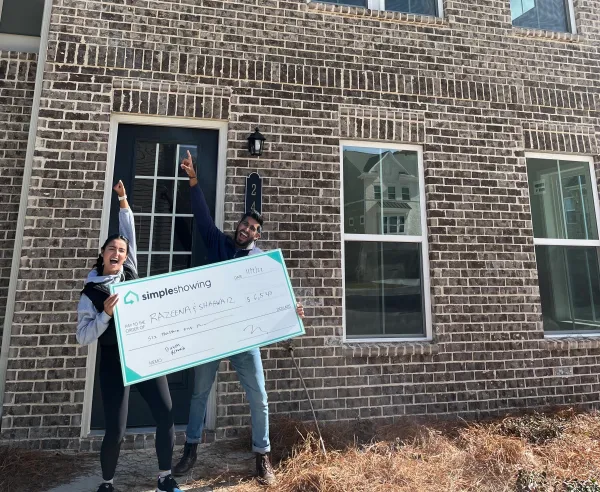Are you shopping for a new home and keep running into the term "contingent"?
A real estate contract often involves special stipulation and "contingencies" that dictate the listing status of a property.
When a home is shown online as "contingent," it's because the property is under contract with a buyer, but the sale is not finalized as a result of one of the various contingencies.
The terms and "contingencies" of the contract are a critical feature of a residential real estate purchase.
What is Contingent Status?
When you're shopping on Zillow, Realtor.com or another favorite real estate app and see a property marked as "contingent", this means that an offer has been made and the home is under contract and is pending sale or pending close of escrow.
The property remains in "contingent" status until the contingency period expires (for example during a 14 day appraisal contingency period). During this contingency period, the seller can continue showing and marketing the property, but they can not accept another offer.
What Does It Mean When a Property Is Pending?
“Pending” is another common label you’ll often see on real estate listings. It simply means that the home is under contract and the two parties are moving forward with the sale as the contingencies have been resolved.
Whereas a property labeled “contingency” is still technically active, that’s not the case with one that is in pending status. The offer was accepted, and the contingencies were resolved. Both parties are just waiting on legal and title work to clear.
Keep in mind that the terminology and listing status used is dictated by the local multiple listing service (MLS). In some cases, pending and contingent are used interchangeably, even though they technically have a slightly different definition.
5 Common Types of Contingencies
As a home buyer, there are several common contingencies that you can include in your offer, but that doesn’t mean the seller is going to accept them. Market conditions and days on market tend to dictate the likelihood of a seller accepting a contingency.
If a property has been on the market for several weeks, an anxious seller may accept multiple restrictive contingencies. On the other hand, the seller of a hot property that is newly listed and has already received multiple offers, is unlikely to accept many (if any) contingencies.
The following six are the ones that are the most common contingencies:
1. Inspection Contingency
An inspection period is often known as a "due diligence" period in most states. Home inspection contingencies has become so commonplace that the vast majority of sellers expect it and typical agree to it. Who wouldn’t want to have an expert inspect a home before they take out a mortgage to purchase it?
The important thing to note here is the number of days provided for the home inspection contingency period. For the seller, it's best if this period is short (ie. less than 5 days). For the buyer, you'd want this home inspection period to last 10 days or more. In general, one week is typically what we see in a normal market. During this inspection period, the buyer will hire an inspector to perform an evaluation of the property to discover any possible problems with the roof, plumbing, electrical, etc.
Some sellers will even hire their own inspectors before even putting their home on the market, just to make sure they’re not going to run into any problems.
2. Appraisal Contingency
All lenders will require that a home appraisal be done before they’ll provide funds to a buyer. Some exceptions exist, if the buyer has a very large down-payment and the home qualifies for a "desk appraisal" - which is an automated valuation. The lender wants to be certain they’re not lending any more money than is absolutely required for the house after taking into account the down-payment made by the buyer.
Of course, when it comes to the value of a property and the purchase price, homebuyers should also want to verify the home value. No one wants to spend more than they need to on anything, much less an investment as big as a home. If you're the seller, learn more about how to prepare for a home appraisal.
With an appraisal contingency, the prospective buyer is stating that they won’t pay more than the amount the appraiser values the home at. So, if the appraisal comes in lower than the contract price, the buyer has an opportunity to re-negotiate the price or terminate the contract.
3. Financing Contingency
It's important to understand what to expect when getting a home mortgage because you don’t want to find your perfect home, then get an offer accepted only to discover that you can’t get a loan approval for the property.
A financing contingency (or mortgage contingency) protects the buyer in case they are unable to obtain a mortgage for the property. If the buyer is unable to secure financing from the mortgage lender prior to the end of the financing contingency period, they are able to back out and keep their earnest money.
4. Title Contingency
Before you can close on a home, the title company must carry out a thorough title search to check for any possible issues that might challenge the validity of the sale. Otherwise, you could buy a house only to later learn that the former owner’s ex-wife still has a claim on it.
A title contingency allows the buyer to back out of the sale if the title search comes back with any problems.
5. Home Sale Contingency
For a homeowner looking to buy a new house, finding the perfect home and making an offer is only half the battle. They still have to sell their own house, too.
Say you’ve just accepted an offer on your home, but the buyer still has to sell their own. Until they do, they can’t actually get the mortgage they need to pay you.
A further provision of a home sale contingency is a kick-out clause. With a kick-out contingency in place, you’re essentially telling the buyer that you reserve the right to cancel the sale if another buyer comes forward with the funds needed to complete the sale.
Should Sellers Accept Contingent Offers?
There’s no one right answer here, but, generally speaking, you should consider the market conditions. If the market is working in your favor, you can probably reject contingencies because you’re confident more offers are coming. However, if other terms in the offer are weak plus it contains contingencies, you'd be better offer rejecting the offer or countering some of the other terms.
For example, if the offer contains a low offer, a long appraisal period and a low earnest money deposit, you'd certainly want to counter offer all three terms.
On the other hand, if your home isn’t attracting a lot of interest, or if the home has been on the market for longer than 30 days, you may want to accommodate any interested buyers - despite the contingencies.
Get Expert Guidance with Real Estate Contingencies
Again, you want the help of an experienced real estate agent who has dealt with contingency offers numerous times. They’ll be able to assess your unique situation and give you the best possible advice about how to proceed in a complicated real estate transaction.
At SimpleShowing, we’re changing the way the home buying process works. Choose a qualified real estate agent through our platform and save thousand in Realtor commissions with our reduced listing fees.
Contact us today and we’ll explain exactly how our popular service works.






